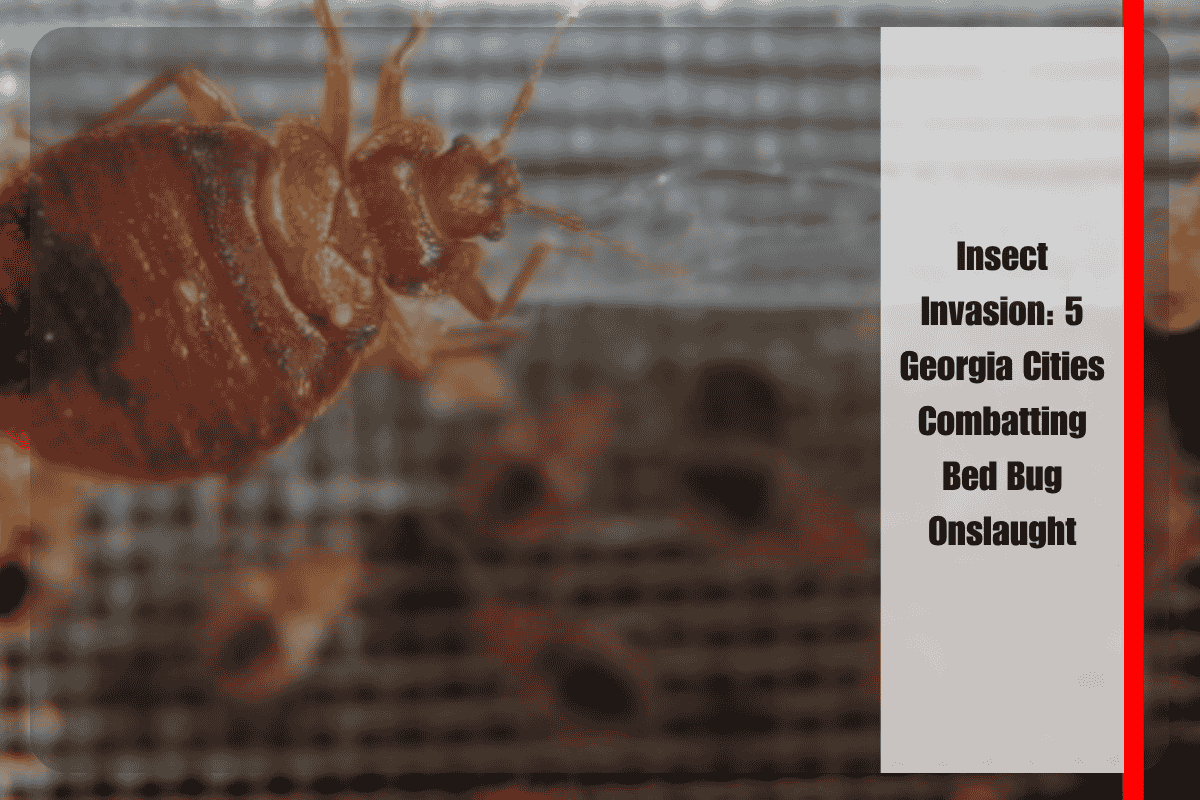Georgia is facing a persistent and costly challenge as bed bugs continue to invade cities across the state, with Atlanta at the epicenter of the struggle. Bed bugs, tiny nocturnal insects that feed on human blood, have become a growing concern in urban and suburban areas alike, thriving in environments with high population density, frequent travel, and diverse housing options. The resurgence of these pests in Georgia is attributed to increased travel, greater resistance to pesticides, and a lack of public awareness about prevention and early detection.
Atlanta stands out as the state’s most bed bug-infested city and is consistently ranked among the top ten in the nation for bed bug problems. In 2025, Atlanta was named the sixth worst city in the United States for bed bug infestations by pest management companies such as Terminix and Orkin. This high ranking is linked to Atlanta’s status as a major travel hub, with millions of visitors passing through the city each year and a large number of residents living in apartments, hotels, and other multi-unit dwellings. The constant movement of people creates ample opportunities for bed bugs to hitch rides in luggage, clothing, and furniture, spreading rapidly from one location to another.
Beyond Atlanta, several other Georgia cities are grappling with significant bed bug issues. Sandy Springs, a northern suburb of Atlanta, ranks 85th nationally for bed bug infestations, reflecting the spread of these pests beyond the city center into surrounding communities. Savannah, known for its historic charm and tourism industry, holds the 145th spot, demonstrating that even smaller cities with high visitor traffic are not immune. Macon, South Fulton, and Athens also appear on national rankings, with Athens making headlines in 2024 when a severe bed bug infestation forced the temporary closure of the Athens-Clarke County Courthouse. The courthouse shutdown disrupted judicial proceedings and highlighted the extent to which bed bugs can impact public institutions and daily life.
Other Georgia cities dealing with bed bug problems include Johns Creek, Columbus, Warner Robins, and Roswell. Each of these communities faces unique challenges, from the need for public education about bed bug prevention to the logistical difficulties of eradicating infestations in multi-family housing and public buildings. The economic impact is substantial, with homeowners, renters, and businesses incurring significant costs for professional extermination services, replacement of infested furniture, and lost productivity due to closures and disruptions.
Experts emphasize that bed bug infestations are not a reflection of cleanliness but are closely linked to travel patterns, housing density, and the bugs’ ability to hide and reproduce quickly. Effective combat strategies in Georgia cities include public awareness campaigns, routine inspections in hotels and rental properties, and rapid response to reports of infestations. Residents are urged to inspect second-hand furniture, check hotel rooms for signs of bed bugs, and report any suspected infestations promptly to prevent further spread.
As Georgia’s urban centers continue to grow and attract visitors, the fight against bed bugs remains a pressing concern. Atlanta and its neighboring cities are investing in education, prevention, and professional pest control, but the persistent nature of bed bugs means that vigilance and community cooperation are essential to keeping these unwelcome invaders at bay.
Sources
[1] https://www.lajaunies.com/americas-most-bed-bug-infested-cities/
[2] https://patch.com/georgia/atlanta/where-atlanta-ranks-among-most-bed-bug-infested-cities
[3] https://www.fox5atlanta.com/news/atlanta-named-6th-worst-us-city-bed-bugs-2025-terminix-survey-finds
[4] https://www.wsbtv.com/news/local/atlanta/metro-area-city-ranks-top-10-bed-bugs/3U5YBOVCSZBJ3EWFGVW22NI5I4/
[5] https://www.orkin.com/press-room/worst-cities-for-bed-bugs-annual-rankings












